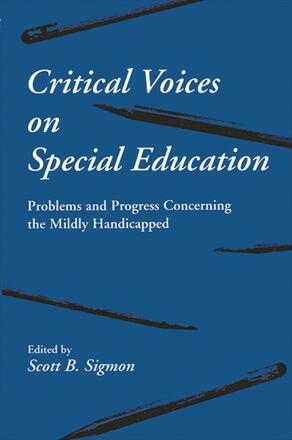
Critical Voices on Special Education
Problems and Progress Concerning the Mildly Handicapped
Alternative formats available from:
Description
The authors of this work address special education's most pressing concern: the inappropriate placement into special education programs of millions of students who fall behind or do not conform well enough to the academic or behavioral standards of today's public schools. Too often, these students are misdiagnosed as "mildly handicapped" and are presumed to have some physical or sensory disability. In fact, this formal labeling practice may carry consequences that are not only self-defeating and potentially ruinous for the stigmatized individual pupil, but also ultimatley threatenting to society as a whole.
The book includes contemporary discussions about needed institutional change, the shortcomings of practice currently in vogue and related to the education of the so-called mildly handicapped, and an appeal for new attitudes toward children that recognizes them as individual learners. The authors offer a unique combination of practical solutions to help set the course for more humane, efficacious educational practice with students who have difficulty learning. They discuss preplacement interventions such as teaching learning strategies, effective short-term counseling, and new ways to assess reading for instructional, rather than "special" placement, purposes.
Scott B. Sigmon is a school psychologist in East Orange, New Jersey.
Reviews
"Special education needs to make profound changes. This collection voices many proper criticisms and recommendations for change. It is an excellent selection of papers by outstanding authors on important topics. Many professionals in special education are looking for a different direction in the field and will want to read this book." — Gerald S. Coles, Department of Psychiatry, Robert Wood Johnson Medical School